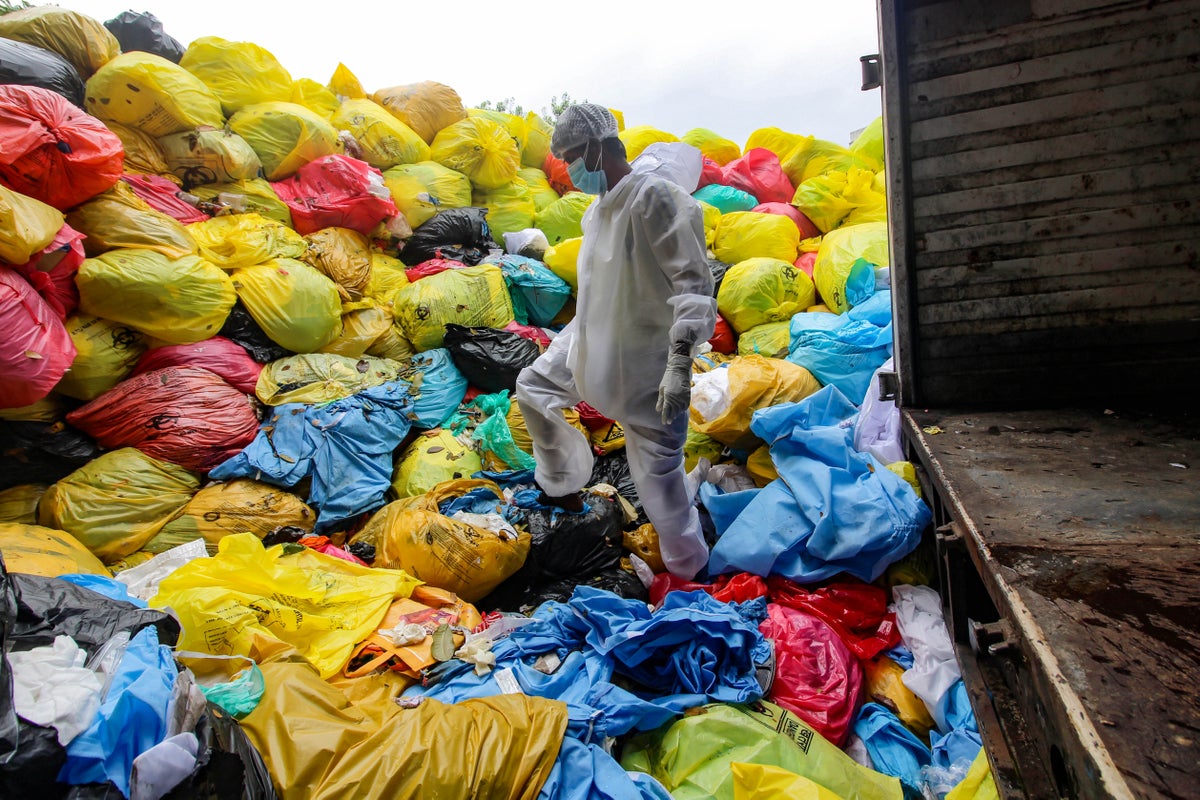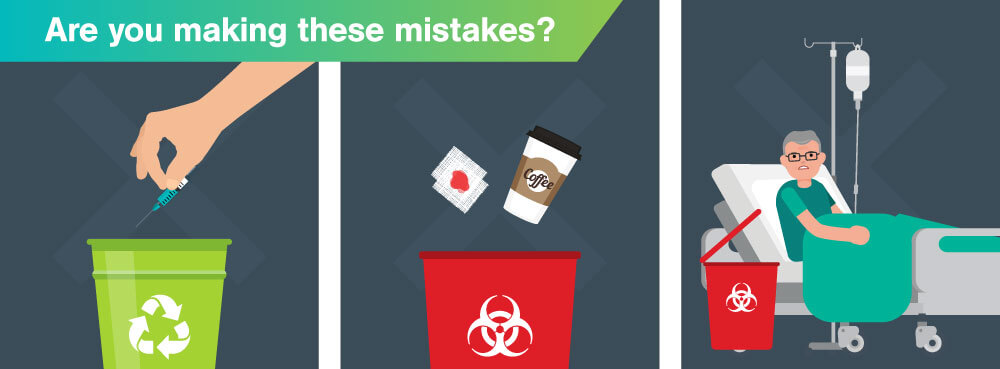Making Sure Safe Handling and Disposal of Medical Waste
Ensuring safe handling and disposal of clinical waste is of critical relevance in healthcare settings. Incorrect monitoring of medical waste can present substantial threats to the environment, public health, and medical care employees. This necessitates adherence to strict guidelines and methods for its safe handling and disposal. In this intro, we will check out the value of proper medical waste monitoring, the dangers connected with improper handling and disposal, along with the standards and approaches that can be implemented to guarantee its safe disposal. Additionally, we will discuss the significance of training and education for health care experts in order to preserve a risk-free and clean health care atmosphere. By complying with these methods, we can properly mitigate the possible threats connected with clinical waste.
Importance of Correct Medical Waste Management
Correct clinical waste administration is of utmost importance in making sure the safety and wellness of healthcare experts, patients, and the basic public. Medical waste refers to any kind of waste generated by medical care facilities throughout the medical diagnosis, therapy, or immunization of human beings or animals. This waste can present serious health and wellness threats if not managed and dealt with effectively.
One of the key reasons that appropriate clinical waste monitoring is important is to stop the spread of transmittable illness. Clinical waste, such as used needles, polluted dressings, and organic products, can carry dangerous pathogens. If not managed and gotten rid of correctly, these microorganisms can be sent to healthcare workers, patients, waste trainers, and also the public, resulting in the prospective episode of diseases.
Furthermore, appropriate clinical waste monitoring assists protect the environment - medical waste disposal. Medical waste consists of hazardous products, consisting of chemicals, drugs, and contaminated compounds. When not handled suitably, these substances can contaminate soil, water bodies, and the air, presenting a substantial threat to ecosystems and public health and wellness
Additionally, efficient clinical waste monitoring guarantees conformity with global standards and local laws. Federal governments and governing bodies have established guidelines and protocols to ensure the safe handling, storage, transport, and disposal of clinical waste. Abiding by these regulations is necessary to stay clear of lawful repercussions and maintain the track record and trustworthiness of healthcare centers.
Threats of Improper Handling and Disposal

Patients can likewise be subjected to these transmittable illness if clinical waste is not correctly thrown away. For circumstances, if contaminated needles or other sharps are not thrown away in marked puncture-proof containers, they may inadvertently puncture individuals, bring about potential infections. In addition, if clinical waste is not set apart appropriately, there is a danger of cross-contamination between different kinds of waste, further enhancing the possibilities of illness transmission.
Inappropriate disposal of clinical waste can additionally have damaging effects on the environment and the general public. If medical waste is not treated and disposed of appropriately, it can pollute water sources, dirt, and air, leading to the spread of conditions and contaminants. This can have long-term consequences on ecological communities and public wellness.
Standards for Safe Handling of Medical Waste
Carrying out reliable methods for the secure handling of medical waste is essential in making sure the defense of healthcare professionals, individuals, and the public. These standards are important in decreasing the risks associated with the handling and disposal of medical waste, such as infections, injuries, and environmental air pollution.
Primarily, health care facilities have to establish a thorough waste administration plan that abides by local, nationwide, and international guidelines. This strategy must include clear directions on waste partition, product packaging, transportation, storage, and labeling. It is essential to separate different kinds of waste, such as sharps, infectious materials, pharmaceuticals, and non-hazardous waste, to stop cross-contamination and promote risk-free disposal.
In addition, medical care personnel need to get complete training on appropriate waste handling strategies. They need to be informed on the prospective dangers of clinical waste, the appropriate use of personal safety tools (PPE), and the correct procedures for managing, transporting, and taking care of different kinds of waste.
Moreover, medical care centers need to regularly keep track of and audit their waste administration methods to make sure compliance with standards. This includes carrying out routine inspections, reviewing waste handling treatments, and giving comments and training to team member.
Efficient Approaches for Garbage Disposal
To make certain the secure handling and disposal of clinical waste, it is vital to utilize reliable methods for waste disposal. Clinical waste can position considerable risks to public health and the setting otherwise managed and gotten rid of correctly. Consequently, health care facilities and waste administration companies have to apply ideal methods to mitigate these threats.
One reliable approach for garbage disposal is segregation. It entails separating various kinds of clinical waste based on their features. Segregation permits the appropriate therapy and disposal of each waste category, lowering the capacity for contamination or injury. Healthcare centers must supply clear guidelines and training to team member on exactly how to set apart waste appropriately.

Moreover, medical care centers ought to team up with certified waste administration business to ensure correct disposal of medical waste. These firms have the proficiency and equipment needed to safely get rid of and take care of of clinical waste in conformity with laws and best practices.
Training and Education for Health Care Professionals
Healthcare professionals play an important function in making certain the safe handling and disposal of clinical waste via thorough training and education and learning. It is important for healthcare companies to have a deep understanding of the potential risks associated with clinical waste and the correct methods for its administration. By getting correct training, medical care experts can lessen the potential transmission of infectious conditions, protect against ecological contamination, and safeguard both themselves and the general public.

Furthermore, training programs must emphasize the usage of individual safety equipment (PPE) and appropriate hand health practices when taking care of clinical waste. medical waste removal service. Healthcare specialists should understand just how to correctly use and get rid of of PPE to secure themselves from possible exposure to hazardous products. They need to also be informed on the relevance of regular handwashing and the proper usage of hand sanitizers to reduce the spread of contagious conditions
Proceeding education and normal updates on medical waste administration techniques are essential for medical care experts. As regulations and guidelines develop, it is vital to keep health care providers notified concerning any kind of adjustments in procedures and finest techniques. This will guarantee that they remain updated and keep a high criterion of safety in getting rid of and taking care of of medical waste.
Conclusion
In final thought, appropriate handling and disposal of clinical waste is critical to guarantee the safety learn this here now of healthcare experts, individuals, and the atmosphere. Ignoring to adhere to standards and regulations can result in various risks and risks. Executing efficient techniques for waste disposal and offering suitable training and education for medical care specialists are crucial in keeping a secure health care atmosphere. By sticking to these techniques, we can alleviate the prospective risks associated with medical waste.
Clinical waste refers to any type of waste generated by medical care centers during the medical diagnosis, therapy, or immunization of human beings or animals. If medical waste is not segregated correctly, there is a threat of cross-contamination in between different types of waste, further increasing the opportunities of disease transmission.
It is vital to divide different types of waste, such as sharps, transmittable materials, drugs, and non-hazardous waste, to stop cross-contamination and advertise risk-free disposal. WasteX Medical Waste Disposal.
To make certain the risk-free handling and disposal of clinical waste, it is important to utilize reliable methods for waste disposal. Additionally, health care centers ought to develop a normal waste collection and transportation routine to prevent waste accumulation and decrease the risk of mishaps or contamination.